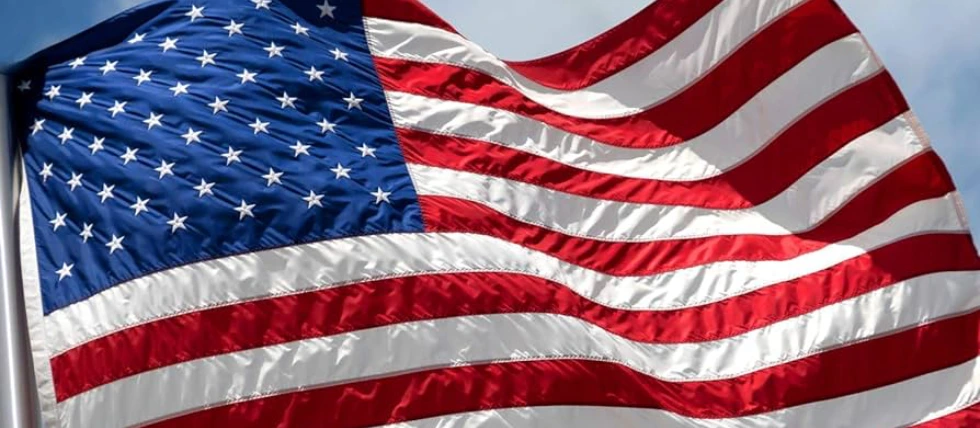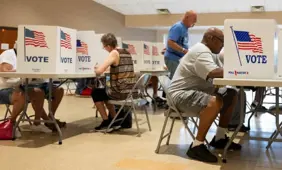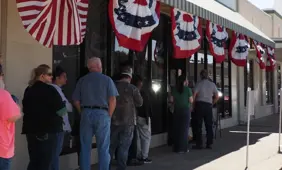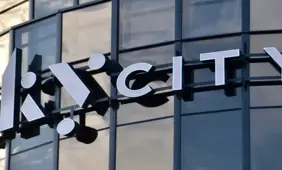How a Historic Ruling Could Transform Political Gambling in America
A landmark decision by Chief Justice John Roberts set the stage for a new chapter in U.S. political gambling. The implications of this decision are vast, opening the door for legal, political betting in the United States for the first time in nearly a century.

USA flag, new era of political gambling in the United States.
Legal Battle over Political Betting
The case, starting all of this, involved a New York-based online betting market, Kalshi, and the Commodity Futures Trading Commission (CFTC), a federal regulator. Kalshi claimed that the CFTC wrongly halted trading contracts on political elections by misinterpreting gambling laws, equating elections with games of chance.
With support from the right-wing Cato Institute and investment from trading firm Susquehanna International Group, Kalshi argued its case. After a short trial, Judge Jia Cobb, appointed by President Biden, ruled in favor of Kalshi, citing the Loper Bright decision. This ruling allowed Kalshi to offer election betting, marking a potential shift in the U.S. gambling landscape.
Political betting in America isn’t new; offshore platforms like Polymarket and PredictIt have been offering wagers on election outcomes for years, albeit on a limited scale. However, the Kalshi ruling could bring political betting into the mainstream, creating a more open and legal market for these activities. Such a change raises numerous questions about how this practice might influence future elections, particularly in a politically charged environment.
The mechanics of political betting markets are straightforward. Bettors place money on potential outcomes, such as which candidate will win an election. The balance of wagers on each side indicates the perceived odds. Companies like Kalshi earn revenue through fees on each trade, making high participation crucial for their business model. Kalshi’s investors, including Susquehanna, see legal betting as an essential part of their growth strategy.
Other political betting platforms, like Polymarket, also stand to gain from this potential market shift. Polymarket has attracted significant investment from figures such as Peter Thiel and venture capital firms like General Catalyst, indicating the high financial stakes involved.
Related: Assassination Attempt Significantly Boosts Trump’s 2024 Presidential Odds
Despite the potential economic benefits, concerns about market manipulation are already surfacing. Critics argue that wealthy backers could use these markets to shape public opinion by betting on their preferred candidates, potentially creating a self-fulfilling prophecy. Democratic Senator Jeff Merkley has expressed fears of a “corrupting combination of dark money and election bets” that could distort democratic processes.
More Regulation News
The Stability and Challenges of Political Betting Markets
Historical evidence suggests that political betting markets have been relatively resistant to manipulation. According to Koleman Strumpf, a political economy professor at Wake Forest University, political betting was common in the 19th and early 20th centuries, with little indication of market interference. Regulated markets with extensive trading tend to be more stable, unlike offshore platforms where small sums can easily sway outcomes.
While the ruling remains in a temporary stay pending an appellate decision, the prospect of legal political gambling is inching closer to reality. As history has shown, where there is demand, the supply inevitably follows. However, the potential pitfalls and ethical questions surrounding this new form of gambling ensure that the conversation around its implementation will be a complex one.
RELATED TOPICS: Regulation
Most Read
Virginia, Arkansas, and Missouri to Vote on New Gambling Initiatives
Nov 05, 2024Must Read
 Interviews
Interviews










Review this New Post
Leave a Comment
User Comments
Comments for How a Historic Ruling Could Transform Political Gambling in America